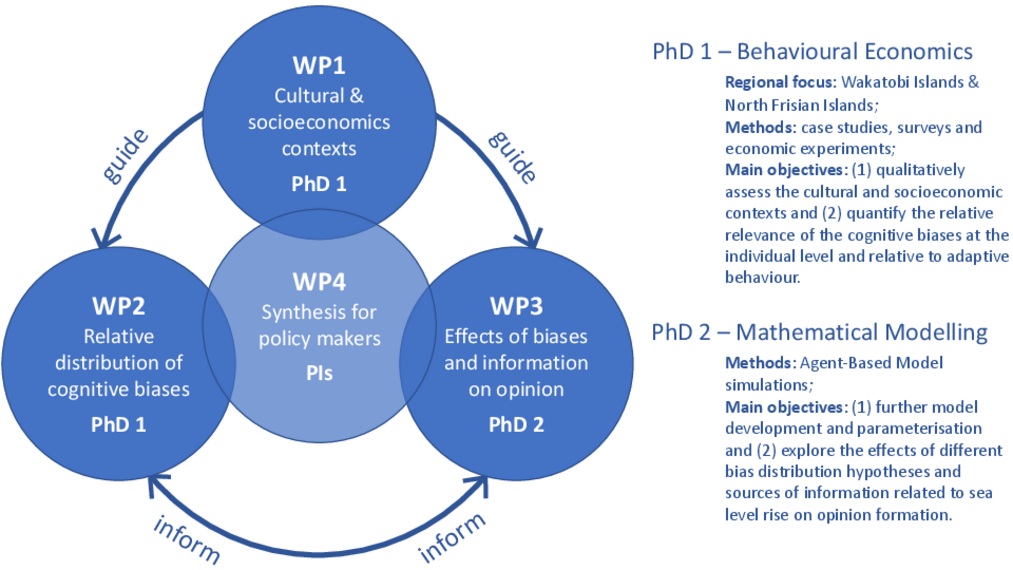SEATRAC
Sea level change and the Tragedy of Cognition: A comparative study on the role of cognitive biases in understanding sea level rise (SEATRAC)
Description and research goals:
Understanding environmental change and the behaviour of humans in relation to this change poses important challenges for both natural and social sciences. A major challenge is to understand the cognitive biases that limit the recognition and prevention of environmental degradation. History suggests that without experiencing direct negative consequences, humans often wait for disasters to occur before undertaking measures for adapting to the looming threats. Sea level change is, in this respect, a classical example of a problem often perceived as distant and quite moderate. Research in experimental economics has identified a number of cognitive biases that affect individuals by making their judgments and decisions deviating systematically from what would be rational or reasonable assessments and choices. Yet, very little is known about the biases that influence adaptive behaviour to sea level change, the consequences of such biases, and what can be done to avoid them.
Here we propose an integrated experimental economics and modelling project to understand and quantify the relative contribution of main cognitive biases in preventing recognition of and adaptation to sea level change. We will focus our attention on six major biases, which are recognised as the most relevant for environmental change. These are: (1) positive illusion bias, (2) cognitive dissonance, (3) fundamental attribution bias, (4) risk perception bias, (5) in-group bias, and (6) present bias. We will adopt a comparative approach by targeting biases related to sea level rise in two contrasting island groups: Wakatobi Islands (Sulawesi, Indonesia) and North Frisian Islands (Schleswig-Holstein, Germany). These two groups of islands are approximately similar in size, both have an important focus on the tourism industry, but are culturally, politically and social-ecologically very different. With an explorative approach, we will first assess and compare the cultural and socioeconomic contexts of the two regions. This will allow us, in a following step, to quantify the relative relevance of the various biases with surveys and behavioural economics experiments.
In addition, with Agent-Based Modelling investigations, we will integrate the relevant information gained with surveys and economic experiments into a broader and more flexible simulative context. Numerical experiments will allow us to explore a number of bias distribution hypotheses and their effects in the context of multiple sea level change scenarios. Behavioural biases are a powerful influence on people’s preferences, perceptions and reactions to environmental change. By identifying the variation of these biases and their relative relevance, our project will shed light on the consequences of information processing and adaptation behaviour so that appropriate political, economic and social policies can be designed to mitigate and possibly prevent environmental disasters.

